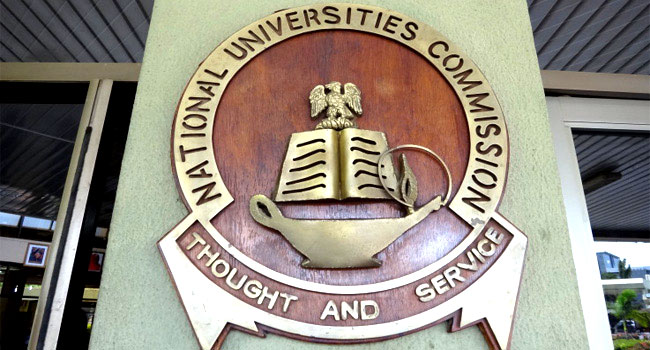By Enyichukwu Enemanna
Nigeria’s university regulatory body, the National Universities Commission (NUC) has expressed concern over growing cases of security threats on campuses across institutions of higher learning in the West African country.
“A number of Nigerian Universities have experienced so many cases of kidnap and abduction of members of the university community.
“Unfortunately, some academic staff and students have died in the process while others are still missing.
“A few incidences of kidnapping have also been reported in some universities in the North and in virtually all parts of the country.
READ ALSO: Fixing Nigeria With An Anthem
“The rising insecurity in the country, which also affects our universities, is hindering teaching and research activities and undoubtedly the general well-being of the institution,” NUC Deputy Executive Secretary, Dr Biodun Saliu stated while speaking at the 7th Annual Registry lecture held at the Elizade University, Ilara- Mokin, Ondo State.
Heritage Times HT recalls that several campuses, including ones run by the military have come under sever attacks in recent times, with many persons abducted, especially in the northern region.
In 2021, suspected bandits in their large numbers attacked the Nigerian Defence Academy (NDA), a foremost training academy for military officers situated in Kaduna, killing two officers and abducting others.
Aside from the officers killed and kidnapped, some others sustained gunshot injuries.
Last month, gunmen attacked the Confluence University of Science and Technology (CUSTECH), Osara, Okene, situated in North Central Kogi State, and abducted several students who were in the class reading to prepare for the first-semester examination.
Some of them were rescued while at least two were reported killed by the bandits, a development confirmed by the police command in Kogi State.
Saliu at the lecture equally listed some of the challenges faced by the Nigerian university system to include inadequate funding, infrastructural deficit, staffing deficit including brain drain syndrome, poor remuneration, inability to prioritize curriculum re-engineering and relevance, governance and administrative issues.
While positing that these challenges as tough as they may appear are not insurmountable, Saliu called for improved funding, strengthening of the National Universities Commission by law, timely curriculum re-engineering and review, and timely reviews of quality assurance instruments by the National Universities Commission and strategic planning to set priorities.




































